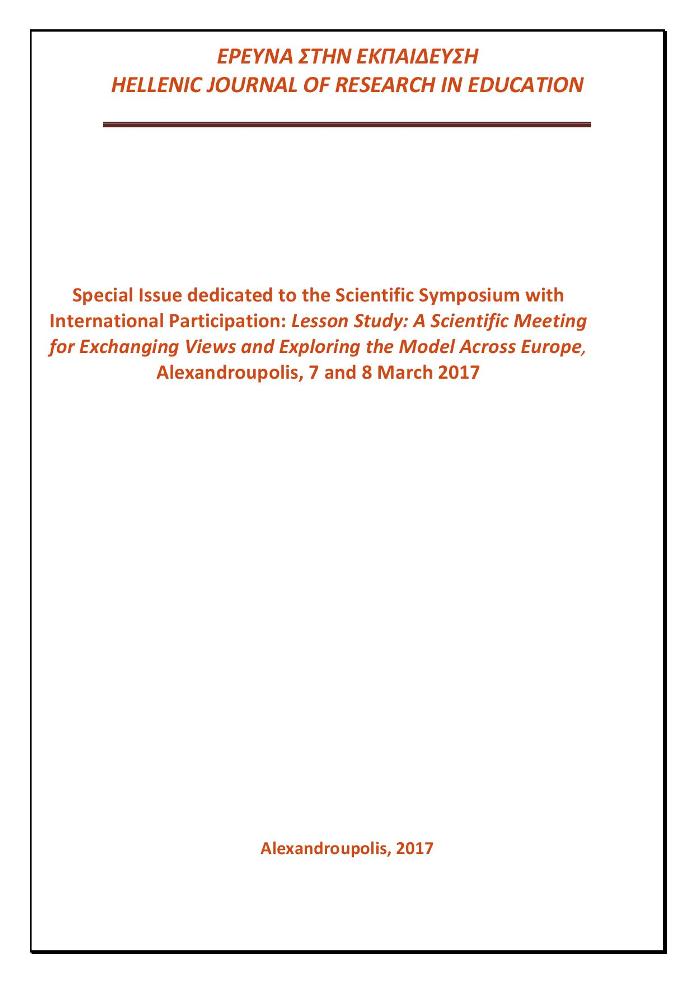Lesson study as a tool in professional development: Engaging pre-service and in-service kindergarten teachers in joint reflective practice
Abstract
Lesson study has been widely implemented as a teacher-led professional development tool to improve students’ achievement and progress, especially in the upper elementary and middle school. Over the years, its use has been expanded in other educational levels as well in pre-service teachers’ training programs, with various forms and adaptations to correspond to different educational and professional contexts, needs and purposes. We present a form of lesson study that combines the reflective practice of both pre-service and in-service kindergarten teachers including the participation of the academic supervisor-facilitator in a pilot program initiated by the Laboratory of Pedagogical Research and Educational Practice of the Department of Education Sciences in Early Childhood. More specifically, the Lesson Study approach was the subject of the kindergarten teachers’ in-service training program and the context of the practicum for the pre-service kindergarten teachers. The academic supervisor-facilitator, an experienced kindergarten teacher and PhD holder, facilitated the process of co-designing the lesson, implementing the lesson in two kindergarten classrooms, as participants teachers formed two joint groups of trainees, reflecting and re-designing. The stages of the process, the roles, the interactions and the beliefs of the participants are presented and discussed with regard to teachers’ professional development and the connection between the university department and the professional community.
Article Details
- How to Cite
-
Πεντέρη Ε. (2017). Lesson study as a tool in professional development: Engaging pre-service and in-service kindergarten teachers in joint reflective practice. Hellenic Journal of Research in Education, 6(2), 43–56. https://doi.org/10.12681/hjre.14845
- Section
- Articles

This work is licensed under a Creative Commons Attribution-NonCommercial-ShareAlike 4.0 International License.
Authors who publish with this journal agree to the following terms:
- Authors retain copyright and grant the journal right of first publication with the work simultaneously licensed under a CC-BY-NC-SA that allows others to share the work with an acknowledgement of the work's authorship and initial publication in this journal.
- Authors are able to enter into separate, additional contractual arrangements for the non-exclusive distribution of the journal's published version of the work (e.g. post it to an institutional repository or publish it in a book), with an acknowledgement of its initial publication in this journal.
- Authors are permitted and encouraged to post their work online (preferably in institutional repositories or on their website) prior to and during the submission process, as it can lead to productive exchanges, as well as earlier and greater citation of published work (See The Effect of Open Access).





